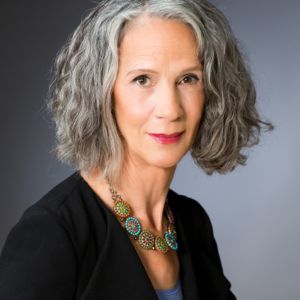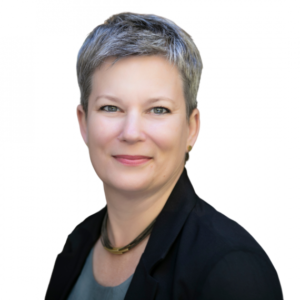In this episode of Lessons from Leaders, Lynne Gilliland sits down with Humentum’s CEO, Dr. Christine Sow. They discuss her career in public health, and background in epidemiology, to her role at Humentum today. Dr. Christine Sow also explores the strengths leadership need to possess in this current climate, and the difference between transactional and transformational leadership. Below is an abridged excerpt from the episode—watch the full video below!
Lynne Gilliland:
I am joined by Christine Sow who is the President and CEO of Humentum. They are a sponsor of ours, a great friend of ours, and we are honored to have you come and talk to us—welcome Christine. So to start with, how about you tell us how you got here—your career trajectory.
Dr. Christine Sow:
I’ve had a fairly straightforward career in public health—I started out working in HIV and disease surveillance. I have a PhD in Epidemiology and worked first on the technical side of things, and then moved into management and the donor side. I spent about 15 years in West Africa, and worked for USAID and UNICEF, heading up health programs for them. I’ve had a great trajectory, working all sides of the house. So having an idea about how things work from different perspectives and getting that approach, that perspective, was very important to me.
I moved back to the U.S. nine years ago and continued working with INGOs here. I was the President and CEO of the Global Health Council (GHC) from 2013 to 2016, and that was to relaunch the GHC—a membership organization that primarily does advocacy and policy work around global health. That was my first work in the membership world and working across a large group of member organizations, thinking about what it means to have constituents and how to put together a kind of hub approach as a member organization that then can serve a wider audience. From there, I was at Population Services International as the Chief Operating Officer for a couple of years. I did some work at Palladium, and now here I am at Humentum.
My move to Humentum made sense for me because as an epidemiologist, I’m trained in being quite orderly in my thinking, and thinking about systems and processes. I’ve done a lot of work in health systems and have always been very interested in efficiencies and accountability. At GHC, I did a lot of work with civil society and their participation and accountability systems at the global level. Coming over to Humentum to head the organization and to interact with all of our organizational members was a chance for me to really think about how can we help others not just approve their efficiency, but do it in a way that allows us to be accountable to our stakeholders and our constituents and our donors.
And for those of you who knew Humentum prior to our current form, know we’re made up from a merger of three legacy organizations. When I joined Humentum we were still looking for our identity, and there was still a lot of reference to the legacy organizations. Frankly, the way that we have worked together throughout the pandemic has allowed us to really come together as one new organization. I think that we very much feel and recognize that internally. And our members—from what I hear from them—are recognizing that in terms of our external-facing as well.
Lynne Gilliland:
What do you see as the strengths that leaders need to have right now, either what you see showing up or what you aspire for leaders?
Dr. Christine Sow:
That’s certainly something I think about a lot, but I will put myself and my own leadership into that bucket as well because I have many of the same challenges. As we’ve seen throughout history, there are opportunities to be had in crises. Whether it’s just making sure that you can get your organization and your people through that crisis intact, which is no small feat, and no one should feel bad if that’s all they do. Or if it’s thinking about, is there a way I can totally transform my organization because of the moment that we find ourselves in.
When I think about the discussions that I have with Humentum CEOs, who I meet with regularly, and the conversations that I have with my peers and my friends, we are having to find this balance between, leading in a crisis, but also running this like an ultra-marathon where they haven’t told you where the end is.
I hope that what Humentum can bring to our member organizations, and our members’ CEOs, is a space to reflect around that, and a peer group to be able to talk to about it and share. The value of being able to share our experiences and what we’ve tried and what worked and what didn’t is invaluable, and CEOs typically don’t have peers within their own organization, so that can make it very lonely at times.
Lynne Gilliland:
You and I also talked about transactional and transformational leadership. Can you hold up both of those and tell us what you see as the difference, and where you would like to see leadership go?
Dr. Christine Sow:
I talk about transactional leadership as the day-to-day. It’s getting the documents together for the board book, and it’s sharing your all-staff meeting—it’s where you are leading and making decisions about the tone you want to set and the positioning and what you want to say, etc. But it is not fundamentally changing the nature or the core of what you’re doing, or your organization—and it’s absolutely critical and necessary. You can’t only be a transformative leader. You have to do the transactional stuff too, and you spend most of your time doing that.
When I think about being a transformative leader—it’s about saying, I’m going to take a really deep naked look at where we’re at, which will include stuff that I probably don’t want to see and may not like, and maybe hard to see. Sometimes it takes an external eye to expose what it is that may be fundamentally not okay with the way that you’re working. And then think, okay, well I’m going to change the status quo. I’m going to shift in a way that kind of rewrites our DNA.
But for us, our challenge is thinking—how are we reaching organizations and communities that may not have easy access to us, either for financial reasons or bandwidth reasons, or just not knowing about what we can offer? How are we structuring that offer? How are we reaching out to communities? How are we making ourselves accessible if a community or an organization wants to be part of us? Can they have that access, or do we have to change something to allow for that to happen?
And then along with that, it’s thinking about how does all of that together allow us to hopefully be transformational in the sector and help the sector move towards being more diverse, more inclusive, and more equitable? So, answering some of those very pointed and difficult questions around decolonizing global development and what is Humentum’s role in that?
We are absolutely at the beginning of this journey; we are working through this. We don’t have all the answers. We’ve put together a framework to help us think through how to be transformative. We will set milestones for ourselves so that in six months, a year, we can be public about our journey and where we’ve gotten, and what our challenges have been.


